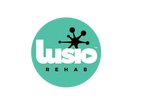Neuro Rehab: A Complete Guide
Introduction
Are you looking for neuro rehabilitation (neuro rehab for short) for your loved one? Individuals with neuro disorders or other neuro conditions need top-quality care to improve their conditions and quality of life.
At Lusio Rehab, we understand the special need for at-home care for individuals recovering from neuro conditions and / or neurological disorders such as, Parkinson's, stroke, spinal injuries, traumatic brain injuries and more. LusioMATE offers a physical therapy suite that can be used at your home, a clinic, a care facility, anywhere or anytime.
In this blog, we will take you through the concept of neuro rehab in a comprehensive way. Let us begin!
What is neuro rehab?
Neuro rehab is a program designed specifically for individuals with neurological disorders / conditions / diseases affecting their neuro (nerve / nervous) system.
This program is designed to help them improve their neuro system by reducing the symptoms and improving the individual's overall well-being.
Depending on the severity of the condition, people can opt for neurorehabilitation at home, but if very severe the neuro rehab program will be administered within a hospital or some form of healthcare facility.
Who can benefit from neuro rehab?
There's a wide variety of conditions that can benefit from a well structured neuro rehab program, and if the condition is very severe then it might well require what can also be termed as advanced neuro rehab. Below we outline some of these conditions:
- Vascular disorders— ischaemic strokes, haemorrhagic strokes, subdural haematoma and transient ischaemic attacks (TIAs)
- Infections—meningitis, encephalitis, polio and brain abscesses
- Traumas that can often lead to brain injury (TBI) or spinal cord injury (SCI)
- Nerve and / or muscle conditions - Bell's Palsy, Carpal Tunnel Syndrome, Cervical Spondylosis, Muscular Dystrophy
- Progressive Neurological Conditions —Alzheimer's disease, Motor Neuron Disease amyotrophic lateral sclerosis (ALS), Multiple Sclerosis, Huntington Chorea and Parkinson’s Disease.
- Autoimmune diseases - Guillain-Barré Syndrome and Multiple Sclerosis (MS)
What does neuro rehab involve?
A neuro rehab program can comprise many things, but all with the aim of improving the condition, quality of life and overall health outcome for the individual. Some of these are outlined below:
- Assisting in performing regular chores such as bathing, toileting, eating and more
- Retraining for bladder and bowel control
- Counselling on nutrition
- Education and counselling
- Retraining for social and behavioural skills
- Managing stress and anxiety and controlling depression
- Providing emotional support
- Managing pain
- Participating in support groups
- Therapy to regain the ability to speak, write, read and swallow
- Programs to increase mobility, exercises to improve fine and gross motor skills and imrove balance
- Vocational counselling
- Encouragement to reach movement goals
- Taking care of safety with home care adjustments if necessary
- Aiding in acquiring assistive machines, devices and technology to reduce dependence on others
- Programs to enhance and regain cognitive skills
Some of the therapy modalities used in neurorehabilitation
Physiotherapy
As the name suggests, this therapy is geared towards an individual's physical well-being, and is aimed at improving movement. A Physiotherapist will guide individuals through exercises to help them regain their movements.
LusioMATE can help the people complete their movement goals, especially if doing their neuro rehab at home by motivating and engaging them through Fun game play. With LusioMATE the dynamic changes from someone thinking 'I must do my exercises' to 'I'm going to play some Lusio'!
Occupational Therapy
This therapy involves the re-training of functional life skills in order to reduce dependency on others for day-to-day chores such as eating, bathing, toileting, dressing, etc.
Speech Therapy
As the name suggests, this therapy modality involves teaching / re-training the individual to speak. It is more common with individuals who have recently had a stroke or brain or spinal injury.
Because speech therapists have so much knowledge about the muscles in the mouth they are also very well placed to help individuals with swallowing difficulty (dysphalgia).
Psychological Therapy
Also known as cognitive therapy, this therapy focuses on an individual's cognitive and behavioural skills. This therapy also helps people come to terms with their condition and look at it from a different perspective.
Benefits of neurorehabilitation at home
Although the statistics for adherence rates of at-home rehab are as low as 15 to 50 per cent, these results can be improved by incorporating advanced technology like our LusioMATE into therapy sessions.
Following are some of the major benefits of at-home neuro rehabilitation:
- Much more convenient
- Complete rehab at your home
- Get personalised care
- Potentially a faster way to recovery
- Familial support
- Able to adapt to assistive technology and devices faster
- Recovery at your own pace
With these benefits, many people have started opting for at-home neuro rehab.
Conclusion
That was a comprehensive guide to neuro rehab along with what it includes, areas of practice and benefits of .
If you are interested in opting for neuro rehab at home, the best way to go about it is to talk to your healthcare professional about incorporating it with Lusio Rehab’s LusioMATE. LusioMATE is a technology integrated with an app where you can choose fun and engaging games to play with wearable Bluetooth sensors that can attach to various parts of your body. This is a much more interactive way for physical therapy and has shown that it results in improved adherence and overall health outcomes..

